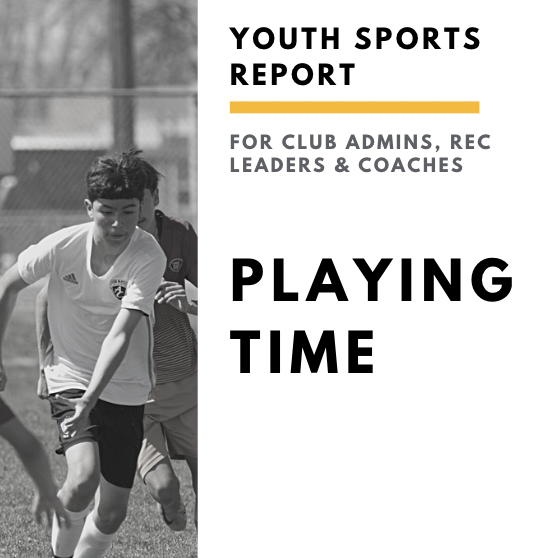Get our exclusive report. Download the iSport360 Club Switching Report Here – For Club Admins, Rec Leaders and Coaches.
5 Signs of Toxic Leadership on Your Sports Team
Being on a team is amazing and can sometimes be stressful. When leadership turns toxic, it can impact every facet of the team from the success on the field to the mental part of the game. Good leadership is critical from the start and it STARTS at the top. To have a successful team, leaders need to do what they say, and say what they do.
You can see toxic leadership by the following 5 signs.
Lack of Communication
Effective communication is the cornerstone of any successful sports team. A leader who fails to communicate with their team is often a sign of toxic leadership. This can manifest in various ways, such as not sharing important information, ignoring player concerns, or making decisions without consulting the team. A lack of communication can lead to confusion, mistrust, and frustration among team members.
Toxic leaders may also play favorites, only communicating with certain players, which creates division within the team. In contrast, healthy leadership encourages open lines of communication, where every player’s voice is heard and valued.
Ego-Centric Behavior
Toxic leaders tend to prioritize their personal success and recognition over the team’s goals. They may focus on their own achievements, even at the expense of team performance. Such ego-centric behavior can lead to resentment and a lack of trust among players. I have seen this first hand when coaches are so focused on themselves that the team resents them. The lack of trust grows and drives a wedge between players and coaches.
A good leader should put the team’s interests first and lead by example. They should be willing to make personal sacrifices for the team’s collective success, fostering a sense of unity and shared purpose.
Negative Attitude
A leader with a consistently negative attitude can demoralize the entire team. Toxic leaders often express frustration, anger, or disappointment publicly, undermining team morale and confidence. This pessimistic outlook can be contagious, spreading throughout the team and affecting overall performance.
You want leaders whether coaches or players to have a positive attitude. The saying, “Bad apples spoil the bunch” holds true in every situation and the most positive the better for the team. Just because a coach or player is positive, doesn’t mean that you won’t work hard.
In contrast, effective leaders maintain a positive attitude, even in challenging situations. They inspire their team to stay focused, work through difficulties, and remain motivated, creating a supportive and uplifting environment.
Lack of Accountability
This is my biggest issue in today’s youth sports landscape is the lack of accountability. It starts at the top and you have to be very consistent to build up trust. If you mess up, take accountability.
Toxic leaders tend to avoid taking responsibility for their actions and decisions. They may blame others for the team’s failures, avoid addressing their mistakes, or make excuses. This behavior not only erodes trust but also hinders the team’s ability to learn from their experiences and improve.
In contrast, strong leaders accept responsibility for their decisions and actions, demonstrating accountability and integrity. They use setbacks as opportunities for growth and encourage their team to do the same.
Failure to Empower Team Members
One of the key roles of a leader is to empower their team members and help them develop their skills and potential. Toxic leaders, on the other hand, may hoard power and control, inhibiting the growth of their players. They may limit opportunities for others to shine, creating a stifling environment where individual talents are underutilized.
In contrast, effective leaders empower their team members, allowing them to take ownership of their roles and contribute to the team’s success. They recognize and celebrate the achievements of individual players, fostering a sense of belonging and motivation.
In the world of sports, toxic leadership can be detrimental to a team’s performance and overall morale. Recognizing the signs of toxic leadership is crucial for maintaining a healthy team dynamic. If you observe a lack of communication, egocentric behavior, a negative attitude, a failure to take accountability, or an inability to empower team members within your sports team, it may be time to address the issue.
Healthy leadership is built on effective communication, selflessness, a positive attitude, accountability, and empowerment. By fostering these qualities in your team’s leadership, you can create an environment where players thrive, collaborate, and ultimately achieve their goals, both as individuals and as a cohesive team. Remember, a positive team culture and effective leadership are key to achieving success in sports.
iSport360 is the only app that does it all for youth sports. For more information on what we do, click here.
About the author:
Amy Masters is a sports mom, coach, and club administrator. She has been coaching youth sports for more than 10 years. She started Jr Lions Field Hockey, the youth recreation program for the Hunterdon County community growing it from 40 players in year 1 to 150 players by year 3. A few years later, she saw the love and competitiveness grow then started Omega Field Hockey Club serving NJ and PA players. Prior to coaching, she was a collegiate field hockey player for Lock Haven University. In her spare time (lol), she is head of marketing for iSport360, where she brings her love of sports to a bigger audience.
Learn more or request a demo of our youth sports software that is helping teams improve communication, organization and player development.
June 6, 2023





